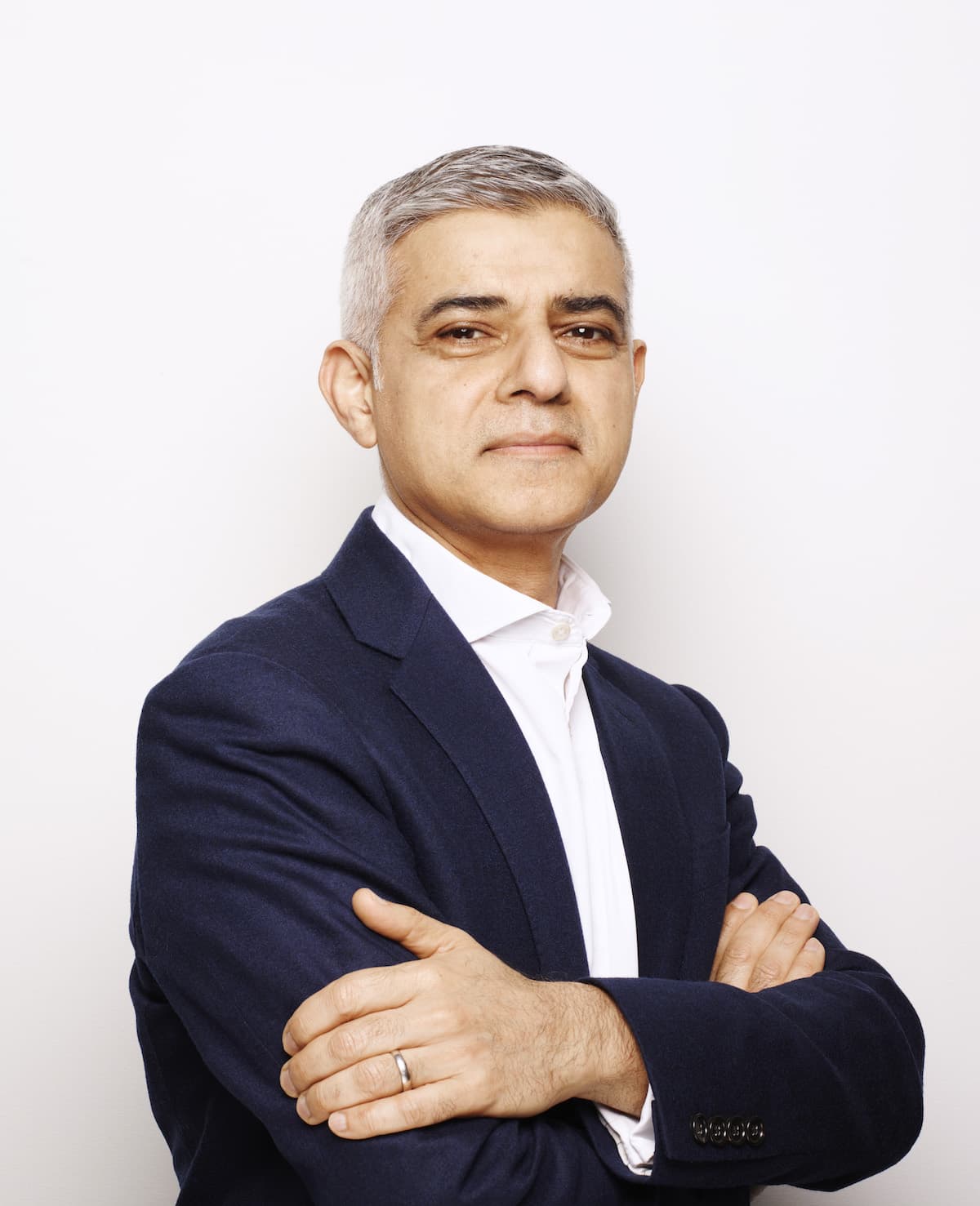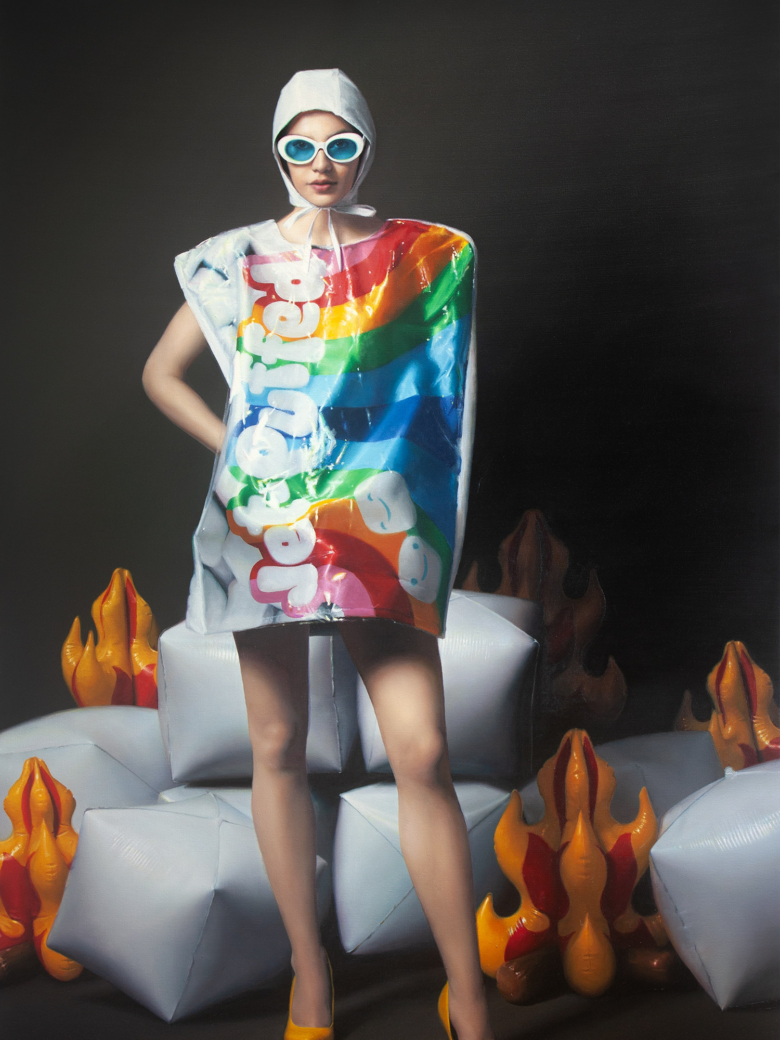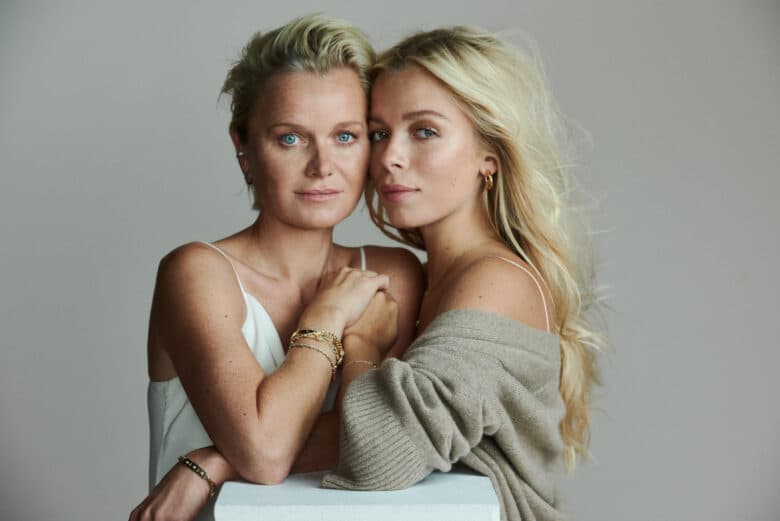
RANKIN, photographer: You seem to have a photographic memory – can you tell me one quote that has stayed with you and has served as your biggest influence?
Sadiq Khan: I’m proud to call myself a feminist. It’s something I can trace right back to my childhood – my parents never let my brothers and me think we were superior to my sister because we were boys. All our ideas were valued and we all chipped in. So a quote that sticks in my mind, and it’s actually a relatively recent one, is from Malala Yousafzai, who I think is amazing. She said, “We cannot all succeed when half of us are held back.” That stays with me, and it drives my determination as mayor to lead by example. Us men need to be allies. It can’t be left to women and girls alone. The quote from Malala is clever because it gives boys and men a selfish reason to be feminists. As mayor, I launched the Behind Every Great City campaign, which increased the profile of women’s contributions to London’s success. And, after committing City Hall to promoting gender equality, our most recent figures show that the gender pay gap in City Hall is close to zero.
Despite London being the most progressive city in the world, women and girls still face huge inequalities and are now faced with increasing challenges from the impact of the pandemic. I’m determined to build a brighter future for London, one where all Londoners can fulfil their potential and where women are not held back.
ZANDRA RHODES, designer: What has been the most challenging thing about your job as mayor of London during the COVID-19 pandemic?
Sadiq Khan: The first few months of lockdown, about this time last year, were particularly challenging – I wasn’t being invited to government COBRA meetings, which is an important decision making group. I didn’t have a say in lockdown or decisions around test, trace and isolate, which was deeply frustrating. Lockdown has been hard, as I’m someone who thrives on spending time with people – I love conversations on the Tube, bouncing ideas around with my team, going to events and meeting Londoners. It’s one of the best parts of the job. To have that taken away has been difficult and I’m really looking forward to having it back.
My focus now is on ensuring that London is an even better city to live in after the pandemic than it was before. I’ll urgently tackle the increase in unemployment with a relentless focus on jobs, revive tourism in central London and support a safe recovery for our hospitality and creative sectors. I am pursuing a vision for a brighter future for London that will make our capital greener, fairer and safer for all, and I will always stand up for our city against the most anti-London government in living memory.
MUNROE BERGDORF, model and activist: With transgender hate crimes on the rise in the UK and a growing anti-trans media climate, what steps will you be taking to ensure that London can become a place of hope and safety for transgender people during these increasingly difficult times?
Sadiq Khan: London is a city that is unapologetically proud of its diversity. There is absolutely no place for transphobic abuse in our city, and I will continue to work closely with the Met Police and others to stamp it out. I am committed to ensuring that trans Londoners feel safe and accepted in our city.
As mayor, I’ve supported plans for the first Trans+ Pride parade to take place in London, backed the colours of the trans flag appearing on the TfL network as part of Pride celebrations and became the first mayor to fly the Trans+ Pride flag outside City Hall. I want London to be a place of hope for the trans community, and I’ll always stand up for all our LGBTQIA+ communities.
PARIS LEES, writer: I’m a trans woman and I’m genuinely grateful for your support of the LGBTQIA+ community, but there are countless posts on your Instagram about Pride and trans rights, yet I can’t see anything about the climate crisis. The science is clear that we are on the path to the collapse of civilisation due to the climate crisis – why aren’t you talking about this every day?
Sadiq Khan: I was the first mayor to declare awareness of the climate emergency and it remains one of the biggest threats we face. That is why I’m determined to tackle it head-on. As mayor I’ve introduced some of the boldest initiatives in the world to improve our environment and ensure a cleaner, greener London – and I’m proud that many of City Hall’s green policies have won international awards for being bold and innovative.
Long before COVID-19 London was facing a climate emergency at the hands of air pollution, with the effects exacerbating existing inequalities within our city. It’s an issue of social justice. Bad air quality disproportionately affects the poorest Londoners, and as someone who developed asthma as an adult, I know first-hand just what effect poor air can have on health. That’s why I introduced the world’s first Ultra Low Emission Zone [ULEZ], which has cut toxic air pollution by almost half in central London and more than a third across London already. But I want more Londoners to benefit from cleaner air, so my plans are to expand the ULEZ to the North and South Circulars in October this year.
I’ve also boosted funding and licensed nearly 4,000 zero-emission-capable taxis and, in a major milestone, all buses in London’s 9,000-strong fleet now meet the strictest emissions standards. We have more electric buses than any other city in Europe. And London is now visibly greener too, with a record 330,000 trees planted since I was first elected. Looking ahead, a top priority will be jobs, jobs, jobs – good, high-quality jobs for Londoners in future-proofed sectors such as the green economy and a green skills academy, so that we can tackle the climate emergency and the looming unemployment crisis.
I’m proud of London’s world-leading efforts to clean up our air and the real progress we’ve made towards a greener future, but we can’t stop now – we’ve got much further to go.
VIVIENNE WESTWOOD, designer and activist: I am the only person with a specific and radical plan to save the world. We’re at +1 degree tipping point – it’s urgent. Sadiq, will you read my manifesto – climaterevolution.co.uk – because it’s important for London?
Sadiq Khan: Like you, I care deeply about the climate crisis. I am absolutely clear that the environmental situation that our planet finds itself in requires urgency and is of fundamental importance. As mayor, I’ve used every lever in my power to tackle the climate emergency in London. I’m proud that London was among the first three cities in the world to develop a climate plan that is compatible with the highest ambition of the Paris Agreement and keeping rising temperatures below 1.5C, and I’m committed to making London a zero-carbon city by 2030, faster than any comparable city.
My plan for London will place climate action at the centre of our recovery from the pandemic. We simply can’t replace one health crisis, COVID-19, with another one – air quality. We have a once-in-a-generation opportunity to rebuild our cities and our economies so that they are cleaner, greener and more sustainable, and we mustn’t waste it.
RIZ AHMED, actor and musician: How do we make London a less unequal city, one where the gap between the haves and have-nots isn’t so great?
Sadiq Khan: I love London and want to help our city towards a brighter future after this pandemic, one in which Londoners of all backgrounds and beliefs recognise that this is a city where they can fulfil their potential and which is safer, greener and fairer for all.
The best way to tackle poverty is by giving people access to reliable, well-paid work, which is why my relentless focus will be on jobs, jobs, jobs. I will ensure every young Londoner is offered a mentor and good local youth facilities. You know the difference culture can make, so I will continue to invest in cultural programmes to give young Londoners access to these. I will protect jobs, support job creation and help Londoners who have found themselves unemployed back into work. I’m talking about good, high-quality jobs in the solar industry, jobs helping to electrify our bus fleets, jobs expanding our electric-car-charging infrastructure and much, much more. I plan to set up academies in future-proofed areas, such as the green, creative, digital and health and social care sectors. This will ensure all Londoners can have access to the skills for the jobs of today and tomorrow.
I have already cleaned up London’s toxic air by a third, but with poorer Londoners suffering the most from the effects of air pollution, becoming more ecologically conscious must not be perceived a luxury or an optional extra, it’s a fundamental issue of social justice. My plans for a Green New Deal will not only generate billions for our economy but help tackle the climate emergency, which hits the poorest in our society the hardest.
LAVINYA STENNETT, founder of The Black Curriculum: As we reflect on the recommendations of the recent race report, how will you ensure that the full history of London, including the contributions of Black people and the effects of colonialism, are continually engaged with and prioritised across each borough?
Sadiq Khan: Like many, I was incredulous at the so-called findings of the government’s race report. The idea that structural racism is not an issue is an insult to those who have been confronted by it and who face its consequences every day. It is simply not right that, to this day, Black Londoners are more likely to be in poverty, live in overcrowded housing, be unemployed and experience health inequalities that have contributed to the disproportionate impact of this devastating pandemic on Black and Asian communities.
I have always been clear that education has an important role to play in providing a more complete picture of our history, which is why I have campaigned for Black history to be part of the National Curriculum. I have also partnered with The Black Curriculum to help refresh elements of the London Curriculum, which has served more than 950 primary and secondary schools across the capital.
It is an uncomfortable truth that much of London’s prosperity was built on the slave trade and that our city’s public spaces fail to reflect the contributions of Black, Asian and minority ethnic Londoners, women, LGBTQIA+ and disabled people and many others whose remarkable stories are part of London’s wider story. That is why I established the Commission for Diversity in the Public Realm – to help us move past the one-dimensional perspective of history represented in our public spaces and to help us better convey the fullness and diversity of London’s history and values in our public realm.
NICOLA COUGHLAN, actor: What is it about RuPaul’s Drag Race that appeals to you, and what lessons do you think society as a whole could glean from it?
Sadiq Khan: London is a place where everyone can be who they want to be and love who they want to love, and I think the openness, acceptance of difference and celebration of individuality that we see in Drag Race is what also resonates with so many Londoners. LGBTQIA+ rights are human rights, and I truly believe that the ongoing struggle for equality for diverse communities will ultimately help liberate us all. Queens like Bimini Bon Boulash show the very best of London in expressing their creativity so freely and being unapologetically themselves – we all have something to learn from that.
ANNIE MACMANUS, broadcaster and author: Between 2011 and 2019, cuts removed nearly half of London’s youth service budgets. More than 100 youth centres closed in the city. More than 1,000 children’s centres and 760 youth centres have closed across the country. The YMCA found that overall funding to youth services had been cut in real terms by 70 per cent since 2011. What is your plan to bring back the huge amount of youth clubs and centres that have closed due to funding cuts over the past ten years?
Sadiq Khan: 11 years of Tory government have left our public services – including youth services – chronically underfunded. To counter this, since being elected I’ve invested £70 million – through the Mayor’s Young Londoners Fund – to create more opportunities for young Londoners. More than 110,000 young Londoners are now involved in cultural, educational, sports and other activities. I will continue to invest in young Londoners, giving youth clubs and our brilliant youth workers longterm certainty of funding.
I refuse to allow a generation of young Londoners to be left behind as a result of this pandemic, and that’s why my plans for the future of this city include a New Deal for Young People. I will continue to use every lever in my power as mayor to directly fund services for young people and will also use my convening powers to shine a light on the devastating impact of cuts. I have also pledged to provide every young Londoner in need with access to a mentor – this is a deeply personal pledge, as my life was changed by the one I had growing up.
City Hall can help shape a brighter future for our young people but we can’t do it alone. The government must do much more to get young people the training and support they need in order to fulfil their potential.
RICHARD MALONE, designer: We’ve seen an increase in mentorship programmes, in talks and panel discussions, but how can this translate into free skill sharing, free learning and the building of diverse creative communities?
Sadiq Khan: The past year has been incredibly challenging for our creative industries, but as London starts to reopen I’m determined to help build a better and brighter future for culture in the capital. During successive lockdowns, we’ve come to appreciate from a new perspective how much culture – whether music, art or film – can enrich our lives, but it also plays an important role in supporting the capital’s economy.
I want all Londoners to benefit from the amazing culture that our city has to offer. That is why I have set up Creative Enterprise Zones to support artists and creative businesses, and develop skills and jobs for Londoners. I have also funded creative projects through my Young Londoners Fund and introduced measures to ensure the survival of grassroots venues, including music and LGBTQIA+ venues. London’s cultural offering is world-class and, before the pandemic, was the reason four out of five visitors came to our city. Its recovery is vital not only for our economy but for the power wielded by the impact of British fashion, film, music, theatre, dance and art around the world.

